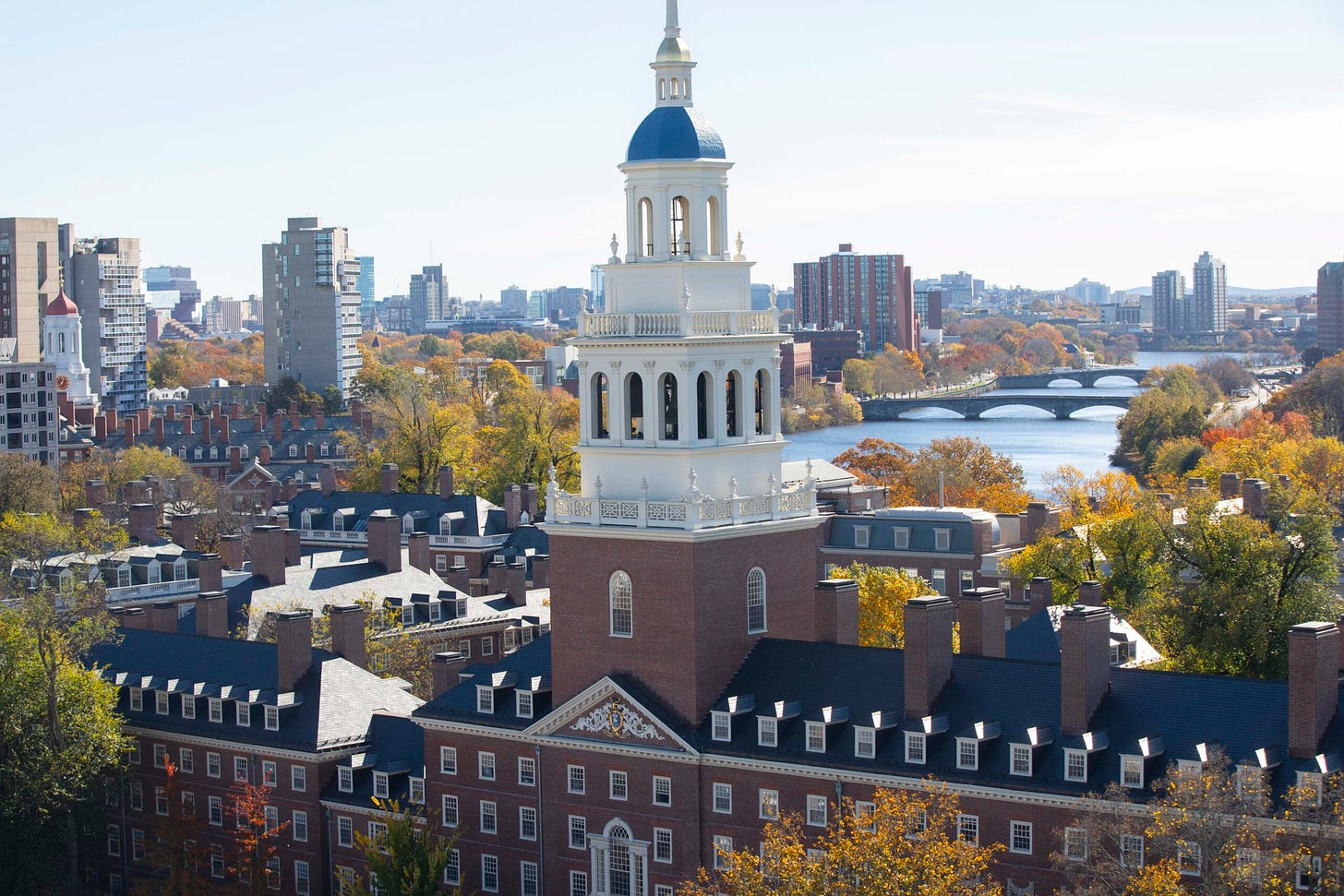A friend helped put together an event in DC during my trip there next week, which will be on Tuesday, May 20, at 6PM at The Crown & Crow. Yesterday, I sent out a link with the wrong date on it, but everything has now been fixed. You can purchase tickets here.
Aaron Sibarium will be there, and we’ll be having a discussion on culture, universities, and more in the Trump era. We’ll basically have our talk, and then take some questions, and then we’ll have a party afterwards where everyone will hang out. Since we’re renting out a part of the bar, we’ll have to charge, but that’s good because you get more facetime with the attendees. It says two drink minimum, but that won’t be enforced. We’ll have more guests who will be announced as the day gets closer. I look forward to seeing many of you there.
On a different note, I’m in The Economist today on the problems with Trump’s war on Harvard. The entire point of the anti-wokeness movement, at least from my perspective, was to fight for merit, freedom, and the rule of law. If you honestly hold these principles, then you have to acknowledge that Trump is trying to replace DEI with something that is even more opposed to them.
On his second day in office, President Donald Trump issued an executive order ending affirmative action in government contracting. I took it as a sign that my work over the years advocating against DEI (diversity, equity and inclusion) programmes and broad interpretations of the Civil Rights Act of 1964 had made a difference, particularly my 2023 book, “The Origins of Woke”, and my participation in Project 2025, the presidential-transition project for Trump 2.0…
Having ideological litmus tests for professors and scientists would do more damage to the principle of merit than race and sex preferences ever have, given how few individuals with advanced degrees identify as conservatives. A study in 2022 showed that among donations by scientists to the two major political parties in federal elections, less than 10% went to Republicans. Are we to give the small minority of Trump supporters in science something approaching half the available jobs in the name of equity? It is hard to imagine a DEI programme that is more radical than that.
Unfortunately, the right’s partisanship and class resentments make it difficult to judge institutions like Harvard and the mainstream media objectively, which would require acknowledging their truth-seeking functions even as one pushes for reforms. DEI is bad because it threatens those functions. Making Harvard professors put on red hats is not how you correct this. You alienate potential allies within these institutions, and if you succeed you’ll leave them even more corrupt than they were before. Steven Pinker should be on your side against wokeness. If you force him to choose between Harvard as it exists and making it into Trump University with a MyPillow sponsorship, he’s going to take the side of his community and will be correct to do so.
I was recently quoted in an Economist piece on the end of disparate impact, in which the magazine asserts that by going after the practice, “the president’s target is not just important but also well-chosen.” This obviously is the same publication now running my op-ed against current Trump policy. Here we have a small demonstration of the fact that conservative ideas can get a fair hearing and even convince many elites, while overreach may harm the cause. Four or five years ago, it would have been considered taboo to go after what was seen as a pillar of the Civil Rights Act. Publications like The Economist did not focus on the problems with disparate impact before, but after some of us brought attention to the issue, elites were able to understand and accept the case against using statistical evidence to infer discrimination as a matter of law.
I don’t see any real defenses out there of what Trump is doing. Here’s Rufo arguing against center-right critics of the administration, yet the policy he defends has no resemblance to the one actually being pursued. Not once does he mention the Trump requirement for ideological diversity, nor the demand that Harvard create an ideological litmus test for foreign students. If Chris thought that these policies had a sound logical and legal basis, I think he would make the case for them. He might believe wokeness is so bad that any policy that strikes against it needs to be supported, but I think that kind of attitude is how you end up defending the indefensible. When many of us saw wokeness as a major threat to institutions, we weren’t necessarily wrong, but it would be a mistake to treat it as the only issue facing elite establishments worth being concerned about. Excessive safetyism, in the form of IRB review and other rules and procedures, is a threat that also comes from the left that I wish rightists would more strongly oppose, and now we have a movement of energetic know-nothing populism in power.
Eventually, there will have to be a new right that is built on something other than resentment and fealty towards one man. The Trump movement seeks to destroy institutions. It can’t build alternatives, and in this case it is refusing to adopt sensible policies to reform them in which the cure won’t be worse than the disease. A war on wokeness that stayed within the confines of existing law and could gain lasting support from academics who are fed up with the far left was possible. Unfortunately, I think it’s become clear that a wiser approach is now in tension with the very nature of American conservatism, at least as long as it is led by Trump.



Banania officially reaches peak human capital status
Populists in shambles.
Turns out Trump is the "woke right" all along (lol).